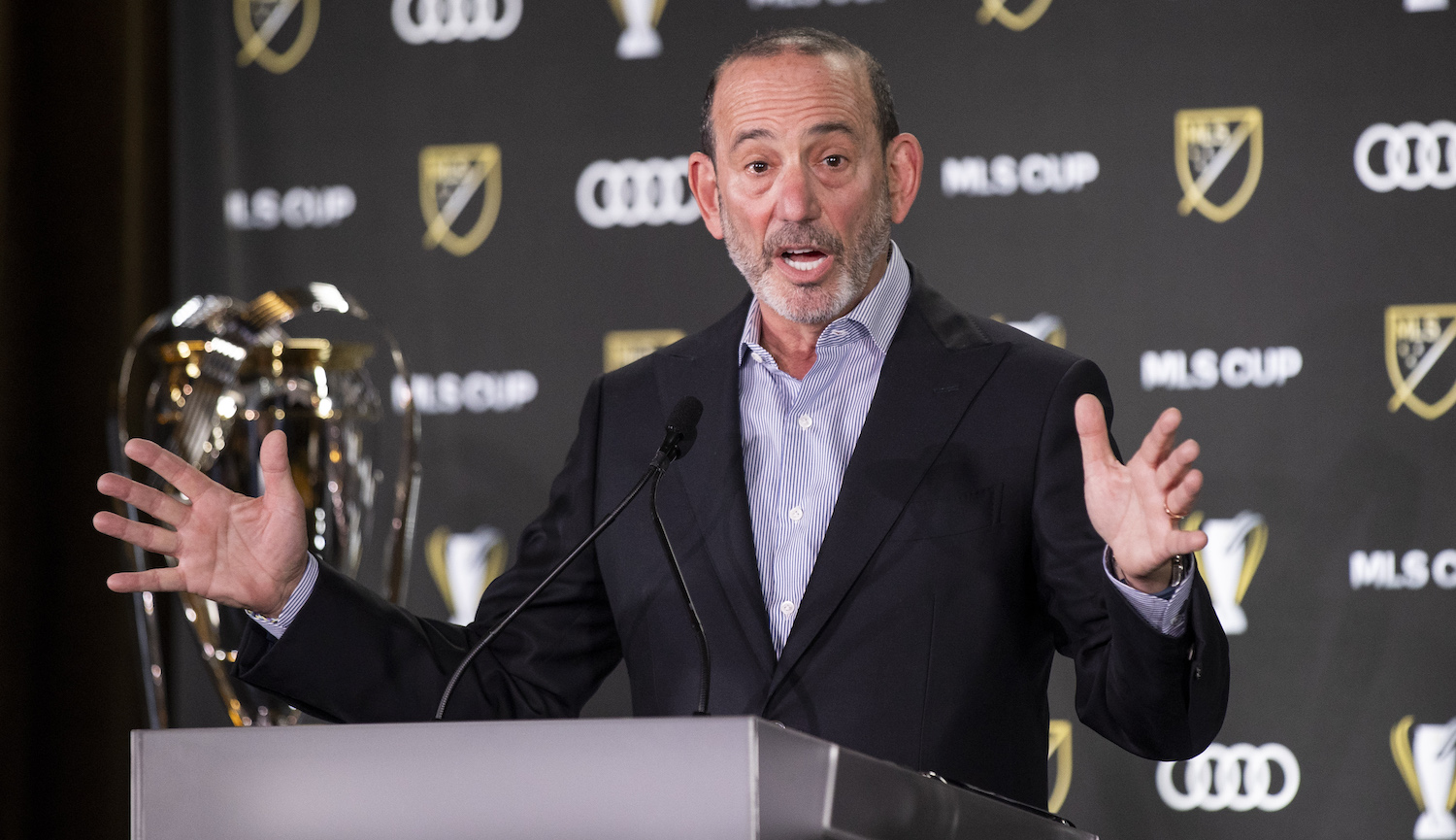Last Friday, MLS news-dumped an announcement that they'd no longer be sending first teams to participate in the U.S. Open Cup, replacing them instead with developmental sides. Commissioner Don Garber has been openly critical of the Open Cup for months on the stated grounds that the tournament is too small-time for MLS clubs and that the schedule crunch of balancing league play alongside cup play is too severe, especially now that MLS sides are participating in an expanded Leagues Cup with Liga MX teams. So he yoinked them. Problem is, they didn't ask U.S. Soccer for permission, and on Wednesday, USSF told them they couldn't just withdraw from the oldest tournament in the country.
The Federation cited the code of professional league standards, which states, "U.S.-based teams must participate in all representative U.S. Soccer and CONCACAF competitions for which they are eligible."
The Open Cup has been running since 1914, and given that MLS teams enjoy an anti-competitive existence free of the pressures of relegation, the tournament is the only remaining link between the league and the rest of the American soccer pyramid. But the Open Cup isn't owned and controlled by MLS, meaning MLS doesn't make that much money from it, and so the league wants out. (And remember, the MLS-controlled Leagues Cup, which in its latest incarnation this upcoming season will include every MLS and Liga MX team, was redesigned specifically to undermine the Open Cup.) Under Garber, MLS has operated like other big American sports leagues, focusing on expansion, real estate scams, and TV deals. For clubs whose place in the league is secure, having to play games against USL teams like the Pittsburgh Riverhounds (who knocked out the New England Revolution last year) and the Sacramento Republic (who made the final in 2022), or, God forbid, any ambitious semi-pro team that advances far enough, is a nuisance that doesn't make them money. The pure competition, long tradition, and, well, openness of the Open Cup makes it special, and Garber's move to pass on the tournament for cynical financial reasons angered many within the American soccer community.
"Arrogant is the number one word that comes to mind," Eric Wynalda said. "I think what I realized in my time as a player, commentator, or as a coach is that since Don Garber arrived, he has changed the business model dramatically. It’s not about soccer, it never was, it was about building stadiums, it was about these land/real estate deals which make sense to an owner and not to the soccer community, players, or fans." American soccer is bigger than MLS, and while the health of the top league in any country is obviously important, it's worth considering the degree to which the goals of the two organizations diverge. USSF's aim should be to grow the game in the United States, getting as many people as possible playing soccer and supporting them at every level; MLS is out to enrich its owners first and foremost, and if it can do so in alignment with the USSF, that is a happy but by no means necessary side effect.
It's worth stressing that the ruling from the USSF doesn't prevent MLS teams from fielding youth players or sub-prime rosters in Open Cup games, which is something top-flight teams around the world do in the earlier rounds of cup competitions every year. As always, teams are free to compete as hard as they want for the trophy, and while it's not clear what enforcement mechanisms USSF has in place to ensure first-team players play in Open Cup games, the incentives for doing so are obvious: you have a better chance of winning the tournament. What Garber wants is to formalize a grim anti-competitive agreement where no team will truly try to go for the Cup. It's price-fixing, basically, and it's wild that it's so gross that the U.S. Soccer Federation looks like the sane ones here.






